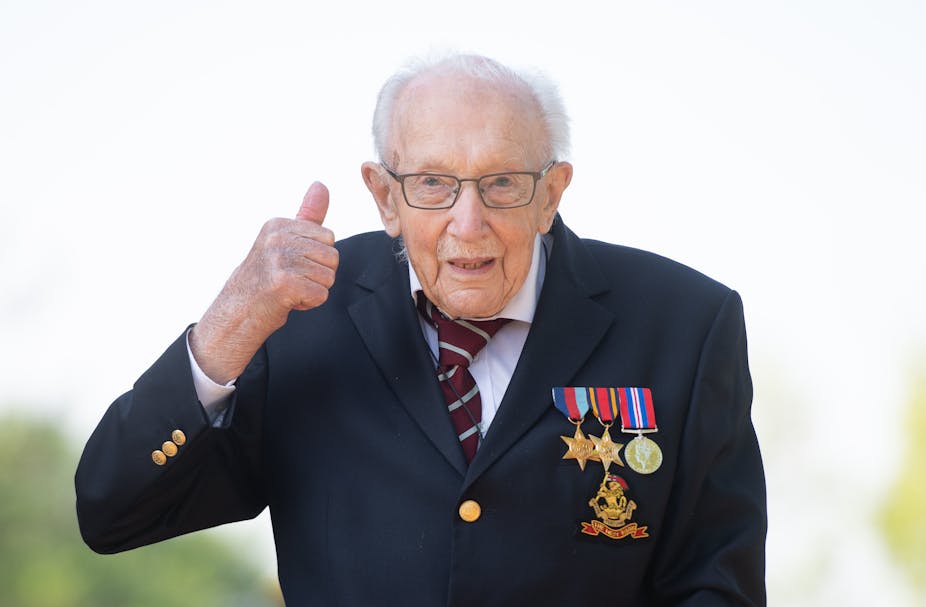Has there been a more popular knighthood in recent times than that granted to Captain Tom Moore for his remarkable fundraising achievements? The positive reception to the move is understandable given the amount of money he’s raised for the NHS – more than £32 million – and the fact he did it while approaching his 100th birthday.
I strongly suspect that this is the first of tens of thousands of honours that will be awarded across the UK in the next year or so, given the bravery and courage of so many working in the NHS, social care and other vital services – not to mention people volunteering to support their local communities. Captain Moore’s knighthood might also spark a broader conversation about whether the honours system should be reformed, and how this might be done.
Opponents of the honours system have long argued against it on the grounds that far too often the undeserving super-rich are given the highest honours available, while engaging in tax avoidance and other unsavoury activities. This is a valid point and promises were made a few years ago to try to tackle the issue – but questions remain about who is rewarded and why.
Other criticisms include that all the major political parties use it as a way of rewarding their supporters and that the whole system is archaic. The argument that the system is out of date was being made as long ago as the 1920s – and certainly those given the awards should be scrutinised to ensure they’re not getting them purely for political reasons.
Options for reform
Over the years, several suggestions have been made as to how the system could be reformed. These have ranged from abolishing it altogether, to widening the selection and approval process to involve more members of the public.
Read more: Dear Sir: five reasons why Britain should keep knights and dames
The latter is not necessarily a bad idea, although I think we should be careful to avoid turning it into a popularity contest. The Boaty McBoatface fiasco shows how easy it can be for public votes to become hijacked.
But if the honours system is to survive into the 21st century, then it probably does need reforming. At their best, awards are meant to reward the worthy – and ideally inspire others to follow their example. In order for this to work they need to be seen as being both transparent and fair. Both of these are qualities that British civic society will need to foster in the upcoming economic downturn.
Just rewards
It should be pointed out in their defence that the vast majority of the honours awarded each year are to people that do deserve them, but that mostly go unreported beyond the local press. Unfortunately, most of the media coverage tends to be focused on either celebrities, or honours awarded to people who subsequently become involved in scandals, creating the impression that the entire system is broken. One way of improving the transparency of the system therefore would be more coverage of lesser-known names and their achievements in the media. Equally, this would help demonstrate that the system is fair.
Another way would be to improve the transparency of the process of how people are chosen. Despite attempts to open it up in recent years, most people have no idea how the system works – and this is perhaps not surprising considering its labyrinth complexity of sub-committee after sub-committee. Equally, the number of awards could be reduced and others abolished entirely.
Some politicians have also suggested changing many of the names arguing that some recipients might feel uncomfortable receiving an award in the name of the British Empire. In 2004 John Major suggested changing the Order of the British Empire (OBE), to the Order of British Excellence in order to better reflect Britain in the 21st century. There is also the argument for creating a unique award for people who have worked so hard during this pandemic.
All of these ideas have merit – but the most fundamental issue remains one of trust. The British public must believe that the honours system isn’t corrupt and that the right people are being rewarded. Giving a knighthood to Captain Tom Moore is a step in the right direction, but must be followed by well-publicised awards to the tens (or even hundreds) of thousands who have helped Britain and the British people during this time of national emergency.

